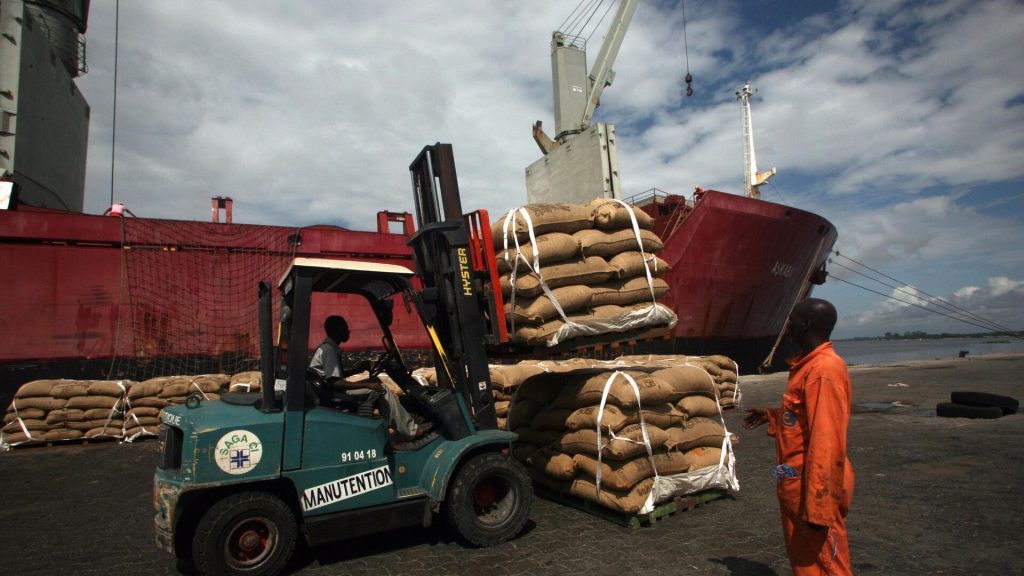Ghana has consistently missed its cocoa production targets over the past three years, even as global prices soar to historic highs. Once a reliable top producer, the world’s second-largest cocoa exporter has failed to surpass the one-million-tonne milestone last achieved during the 2020/2021 season.
JoyNews Research estimates that with a few months to end the crop season, Ghana’s initial production target of 610,000 metric tonnes for the 2024/2025 season could slump by about 4%.
The West African nation’s beans output has tanked by nearly 50% over the past three years. In the 2023/2024 crop season alone, the Ghana Cocoa Board (COCOBOD) was unable to deliver on approximately 330,000 tonnes of committed contracts — a shortfall that has forced the rollover of these contracts to future crop years, according to disclosures in the government’s 2025 budget.
The sharp decline in production is largely attributed to the devastating impact of illegal mining activities and erratic weather patterns, which have disrupted farming across major cocoa-growing regions.
Compounding these challenges is the smuggling of an estimated 100,000 tonnes of cocoa out of the country last year — a development that significantly eroded export revenues, which traditionally average around $2 billion annually.
The situation has also had serious implications for Ghana’s access to international cocoa-syndicated loans. With falling production and increased market risk, international lenders and cocoa buyers have reclassified Ghana as high-risk, demanding significantly higher premiums on credit.
As a result, Ghana has struggled to secure the pre-export financing it once relied on to support the sector.
Further complicating matters, the government has revealed that COCOBOD had locked in forward sales contracts at lower prices than prevailing market rates. This pricing mismatch has resulted in revenue losses of about $840 million for both COCOBOD and cocoa farmers.
The rolled-over contracts are expected to inflict an additional $495 million in losses. On average, Ghana is projected to lose $4,000 in revenue for every tonne of cocoa delivered this year under these deferred agreements.
Financially, COCOBOD is under severe strain. Its current debt stock exceeds $3 billion, with around $942 million due by the end of September 2025. Years of operational losses have weakened the institution’s credibility and capacity, undermining its effectiveness in the global cocoa market.
Despite these headwinds, there has been a temporary rebound in cocoa export earnings, not due to increased production but the relatively favourable global price. In the first four months of 2025, Ghana recorded a significant surge in cocoa-related inflows, which hit $1.84 billion — more than triple the $579 million recorded during the same period in 2024. According to Bank of Ghana data, this rebound is driven largely by high global prices and a pivot away from large forward-sale agreements.
Nonetheless, the underlying fundamentals remain troubling. Illegal mining, climate-related disruptions, and persistent smuggling continue to constrain production, placing additional pressure on an already strained global cocoa supply chain. With demand from major chocolate manufacturers holding steady, fears are mounting over the long-term stability of supply — leaving the global sweet tooth increasingly nervous.
The writer, Isaac Kofi Agyei is the Lead Data & Research Analyst/Journalist at JoyNews based in Accra, where he covers mostly finance, economics, banking, and geopolitics across Ghana and West Africa, from detailed analytical reports on all key issues to debt crises to IMF programmes. He also serves as the data and research correspondent for SBM Intelligence, an Africa-focused market/security leader in strategic research, providing actionable analyses of West Africa’s socio-political and economic landscape. With his solid academic background in economics and statistics and additional training from credible institutions such as the UNDP, Afrobarometr, Ghana Statistical Service, and a host of others, Isaac has honed his skills in effective data storytelling, reporting, and analysis.
DISCLAIMER: The Views, Comments, Opinions, Contributions and Statements made by Readers and Contributors on this platform do not necessarily represent the views or policy of Multimedia Group Limited.
DISCLAIMER: The Views, Comments, Opinions, Contributions and Statements made by Readers and Contributors on this platform do not necessarily represent the views or policy of Multimedia Group Limited.


